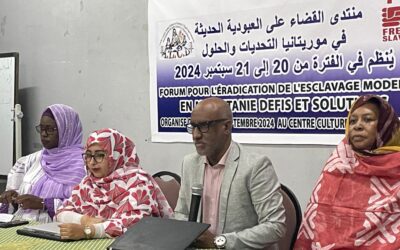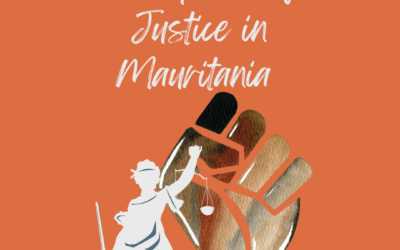Mauritania is one of 22 nations that have volunteered to show the world that progress is possible in the global fight to end modern forms of slavery by stepping forward to become a “Pathfinder Country” under the United Nations Sustainable Development Goals. Mauritania’s president banned slavery nearly 40 years ago and the parliament enacted tough laws in 2007 and 2015. As well, the government has recently made wide-ranging international commitments as a U.N. Pathfinder.
But there are significant gaps between promise and practice. The nation’s law is rarely enforced and the human rights of marginalized groups are not respected. Journalists lack specialized training on modern slavery to effectively hold government officials accountable. The voices of civil society, minority groups and the disadvantaged are often absent or excluded.
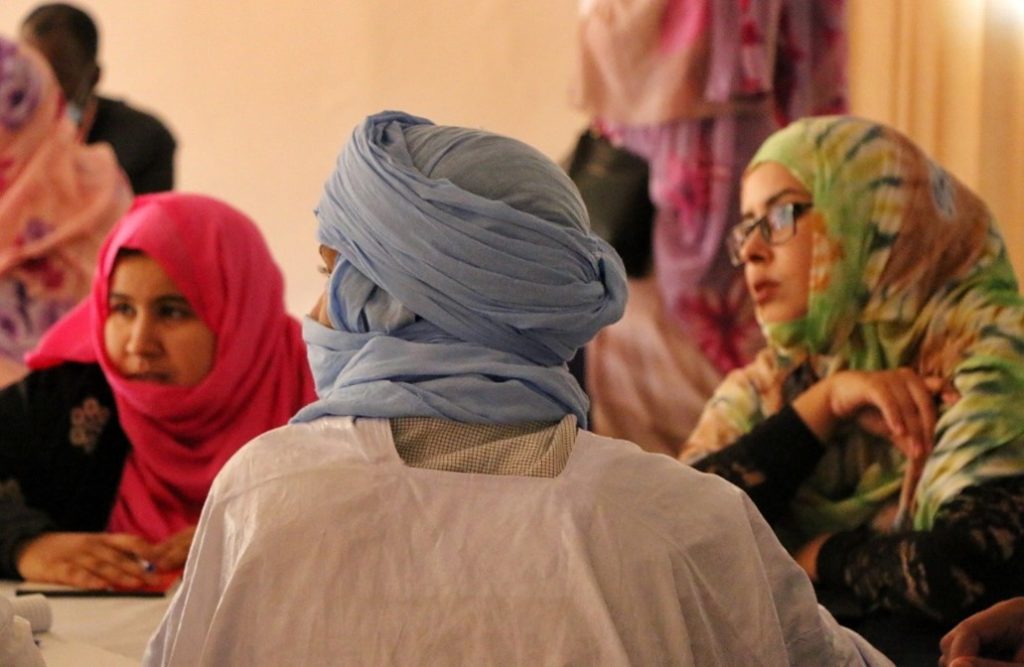
The Promoting the Rights of Mauritania’s Marginalized Communities program trained 40 journalists from television, radio, print bloggers, v-bloggers and other social media influencers how to report constructively and inclusively on the problem of modern slavery and actions taken by the government to enforce its law and fulfill its commitments. Fifteen human rights lawyers and a leading Mauritanian civil society organization with expertise on modern slavery, ALCD, Association de Lutte Contre la Dépendance (Association for the Fight Against Addiction), were trained on effective media relations skills, to foster visibility of minority voices and their struggle for justice.
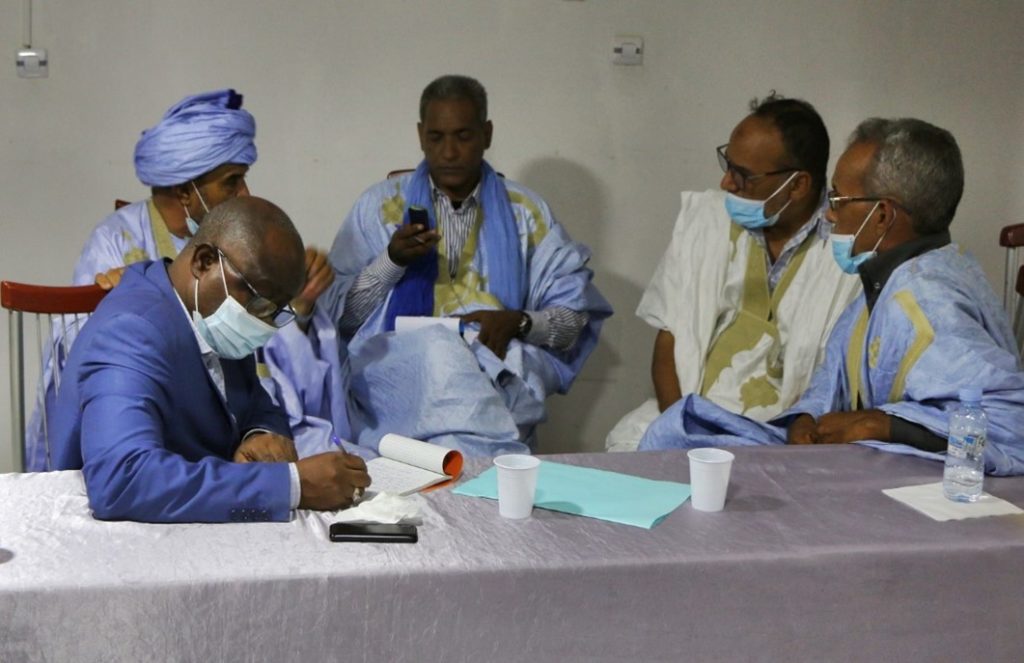
The project was designed to build bridges between the enslaved and the media, promoting the democratizing influence of social inclusion for a neglected portion of the population. The program called attention to governmental shortcomings and showcased needed solutions. The project also created a model for engaging media as a strategy for combating human trafficking and promoting democratic change that can be replicated in other Pathfinder Countries facing similar governmental accountability challenges.
The materials below are being made available for others in the anti-trafficking movement and the journalism/communications training field as resources for other anti-trafficking training projects.
Workshop Curriculum
- Journalists were trained on: 1) the modern slavery situation globally and in Mauritania; 2) international and Mauritania laws to protect marginalized groups; and 3) journalism skills to raise awareness of human rights and the lack of justice related to marginalized groups and to hold the government accountable for its commitments to end modern slavery. See the daily agenda here.
- Human rights lawyers and activists were trained on: 1) international and Mauritania laws that protect marginalized groups; and 2) communications skills to strengthen messaging that assures the voices of civil society, minority groups and the disadvantaged are promoted and that the government is held accountable for its commitments under international agreements and national law. See the daily agenda here.
Workshop Slides
- Slide decks were created to provide visual tools during the multi-day training workshops. They can be downloaded in .pdf form here: Journalist Workshop | Lawyer and Activist Workshop
Workshop Videos
- Training videos included a global overview of modern slavery: What does Slavery Look Like Today. The video is downloadable here: English | French subtitles.
- Two videos were used during the workshop module on how to interview modern slavery survivors. The videos are downloadable here: Part 1, Part 2.
Workshop Handouts
- A modern slavery quiz was prepared to test knowledge pre and post workshop. It is downloadable here.
- Examples of organizational collateral were provided. They can be downloaded here: Slavery and Trafficking Fact Sheet | Organizational Info Kit | Research Report One-pagers: Forced Labor | Forced Marriage
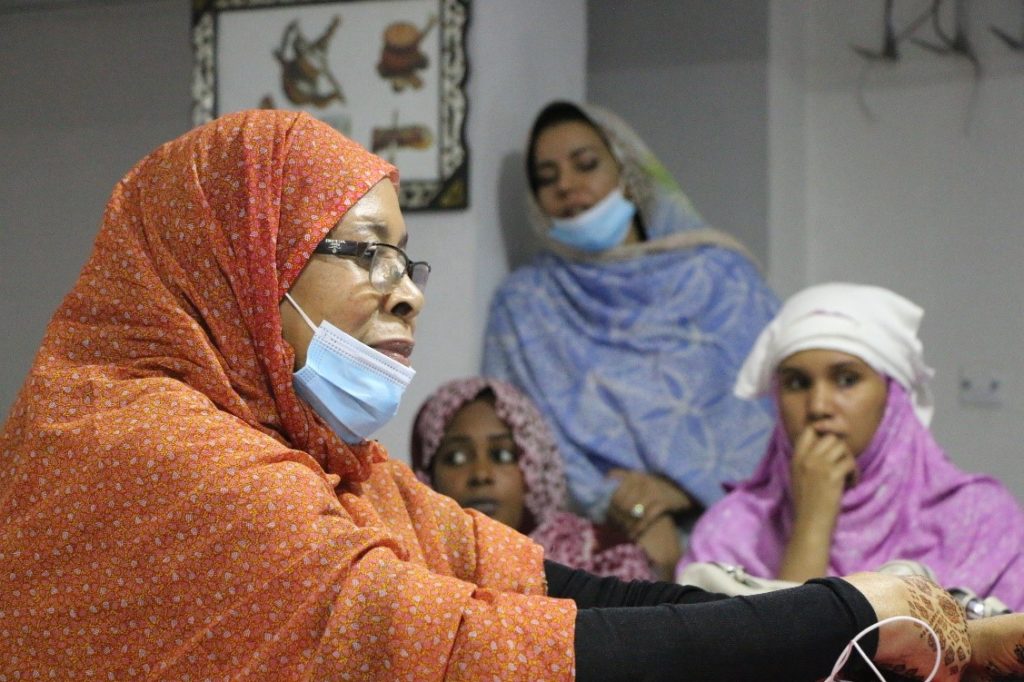
Our thanks to the National Endowment for Democracy for their generous funding to make the Mauritania program possible. Free the Slaves plans to expand on this pilot project approach in Mauritania and in other Pathfinder Countries.

